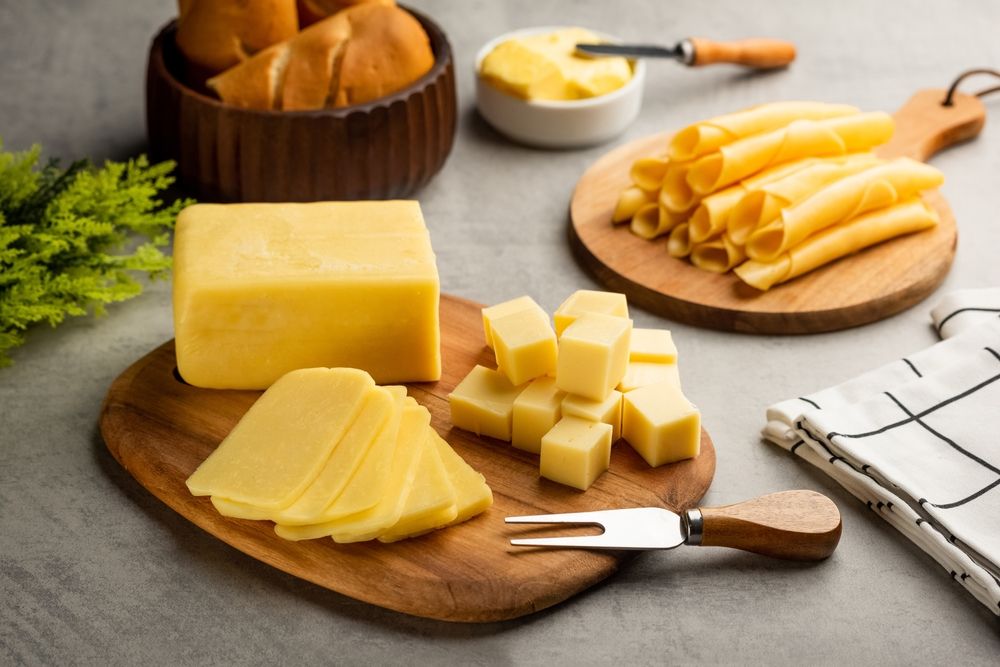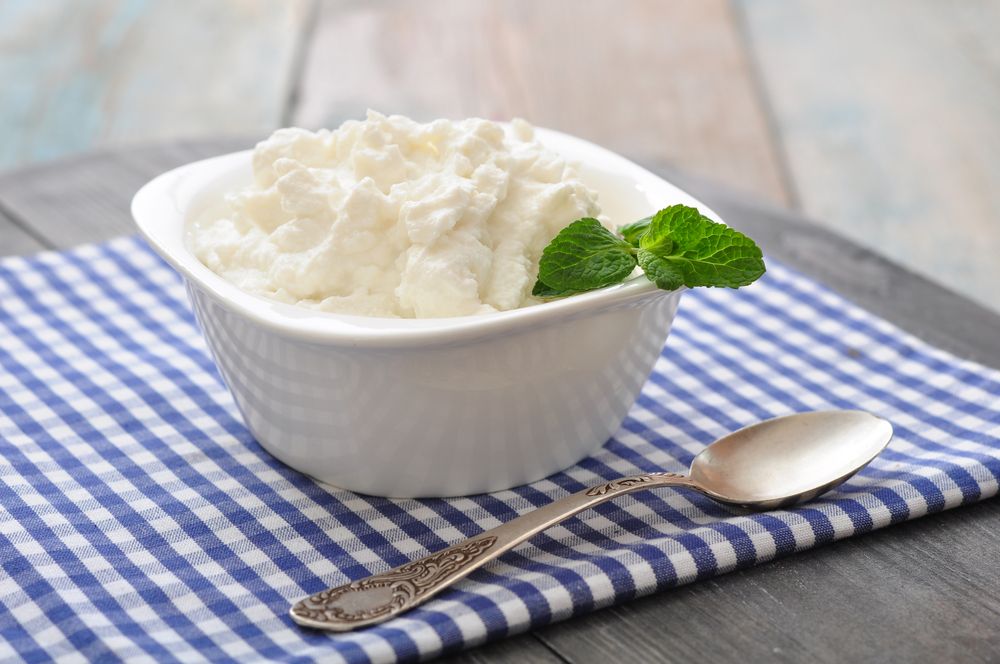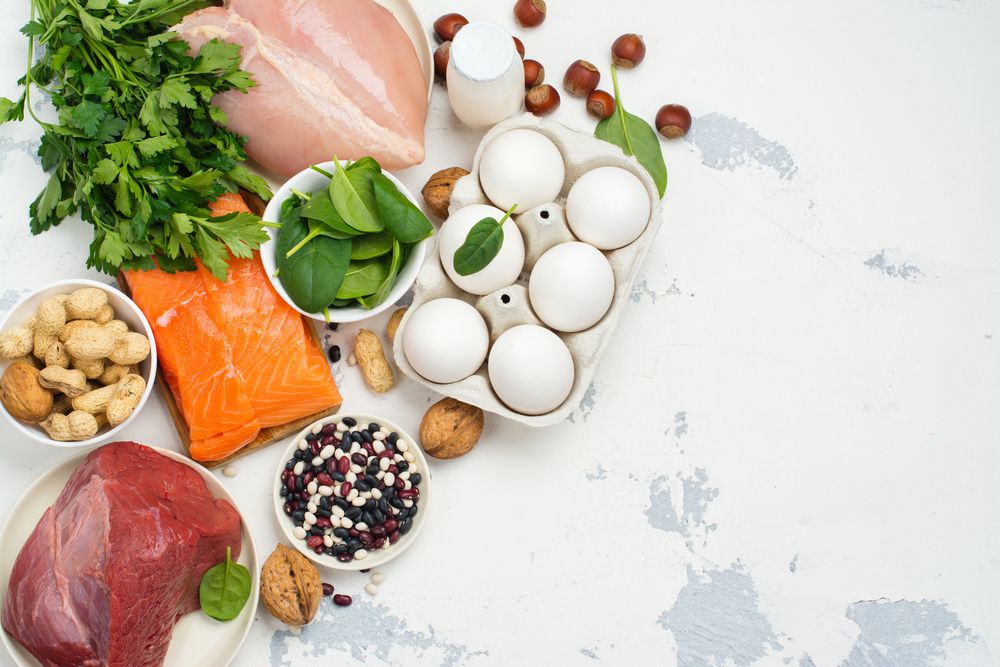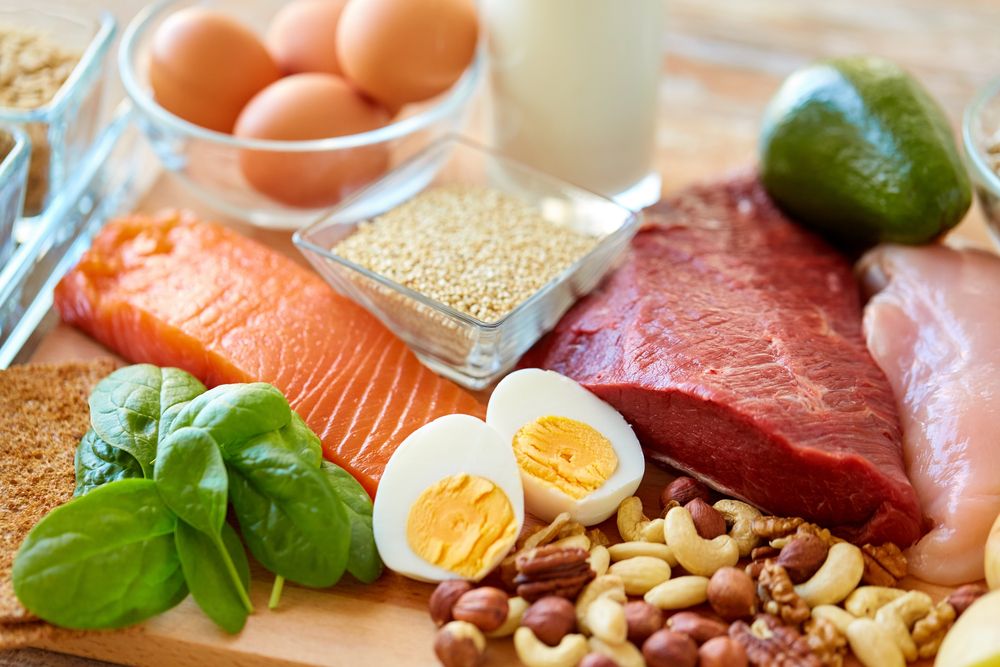When you're committed to shedding belly fat, you may find it necessary to limit the consumption of certain foods. While protein is generally a valuable component of a healthy diet, aiding in satiety and muscle preservation, it's crucial to recognize that not all proteins are equally beneficial. Eat This, Not That! conducted an interview with The Nutrition Twins®, Tammy Lakatos Shames, RD, CDN, CFT, and Lyssie Lakatos, RD, CDN, CFT, who are members of our Medical Expert Board. They shared insights on the number one protein to avoid if you're looking to reduce belly fat. Continue reading to find out more.
What is the worst protein for belly fat?

Get ready for it! This answer might not be well-received by many, but the undisputed worst protein for accumulating belly fat is cheese. Despite its reputation as an excellent source of both protein and calcium, cheese can be highly unfavorable for those focused on reducing belly fat.
The Nutrition Twins elaborate, stating, "The majority of calories in cheese stem from fat rather than protein. For instance, an ounce of mozzarella cheese contains approximately 85 calories, with 60 of those calories derived from fat and only 23 calories originating from protein. Fat calories accumulate swiftly, meaning even a modest serving of cheese can rapidly escalate calorie intake. Conversely, you can consume a considerably more substantial portion of a high-protein food with significantly fewer calories."
Interestingly, most individuals do not typically regard cheese as their primary protein source in a meal. It tends to lack the recognition enjoyed by proteins like salmon, grilled chicken, tofu, or eggs. People often employ cheese in a more carefree manner, akin to a condiment or sauce, resulting in surplus unwanted calories.
The Nutrition Twins further emphasize, "Moreover, to attain the same satisfying 30 grams of protein that you'd find in 163 calories of chicken breast, you'd have to consume 560 calories worth of cheese, such as mozzarella." Consequently, many people incorporate this into already calorie-dense items like burgers, meat lasagna, kinds of pasta, and hearty salads, further contributing to their calorie intake.
What's a healthier protein alternative to cheese?

If cheese is your absolute favorite, you might want to consider opting for low-fat or nonfat cheese varieties. According to insights from The Nutrition Twins, "When some or all of the fat is removed from cheese, it results in fewer calories and typically higher protein content." Enhanced protein content promotes a greater sense of fullness, reducing the likelihood of overeating. For instance, two ounces of nonfat mozzarella cheese provide 84 calories and 18 grams of protein, while the same quantity of full-fat mozzarella cheese contains twice as many calories at 170, with significantly less protein (12 grams).
Low-fat or nonfat cottage cheese is another weight-loss-friendly protein option. Half a cup of cottage cheese contains approximately 90 calories and delivers 12 grams of protein. "Both cottage cheese and nonfat cheese are dairy products that lack artery-clogging saturated fat," The Nutrition Twins emphasize.
Why is eating protein for weight loss important?

Protein emerges as the key player in the realm of weight loss, demonstrating its prowess by imparting a sense of fullness and sustained satisfaction after a meal. Furthermore, it aids in maintaining stable blood sugar levels, thereby averting energy crashes that often trigger unhealthy food cravings. Additionally, protein plays a vital role in the construction and repair of muscle tissue, crucial for enhancing strength and fostering a swift metabolism.
However, The Nutrition Twins caution, "While protein has demonstrated its efficacy in facilitating weight loss if the protein source is laden with excessive fat or sugar, it swiftly accumulates in calories, potentially contributing to weight gain. Furthermore, such protein sources can provoke inflammation within the body, rendering weight loss efforts more challenging."

